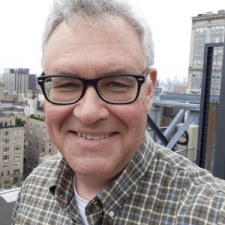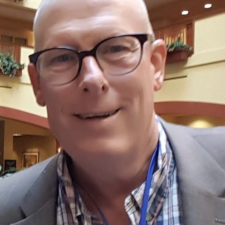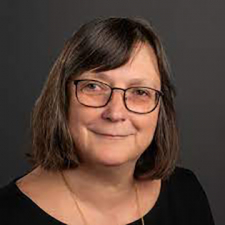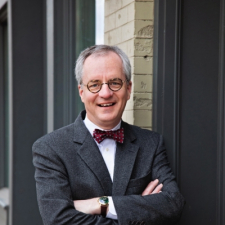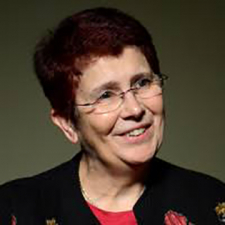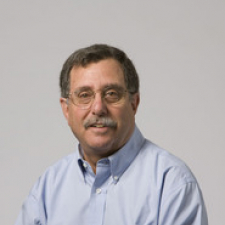The Center for the History of Political Economy held its annual Summer Institute this year on June 3-5, 2021. Because of Covid travel restrictions the Institute was conducted via Zoom.
The goal of this year's Institute was to allow young scholars working in the history of economics (broadly defined) to improve their manuscripts and to get practice presenting their work. There were four sessions each day, each lasting 1 hour and 15 minutes. Participants presented their papers for 20 minutes, and then the group discussed ways to improve both the substance of the paper and its presentation. The group included the Summer Institute participants, the HOPE faculty (Bruce Caldwell, Roy Weintraub, Kevin Hoover, Steve Medema, Jennifer Jhun, and Jason Brent), Paul Dudenhefer (the HOPE Center’s staff specialist), Ross Emmett (Arizona State University), Evelyn Forget (University of Manitoba), and Mary Morgan (LSE).
The papers that were presented were as follows:
- Elizavta Burina, University of Paris 1, “Positivism in the Economic Methodology of Vladimir Bazarov and Alexander Bogdanov”
- Alexandre Chirat, University of Besançon, “The Intellectual Friendship between Berle and Galbraith: Managerial Economics, Corporate Revolution, and Qualitative Liberalism”
- Alexander Dorofeev, New York University, “Maria Edgeworth and David Ricardo: The Potatoes Debate”
- Valentina Erasmo, Università degli Studi G. d’Annunzio, Chieti-Pescara, “Female Economists and Philosophers’ Role in Amartya Sen’s Thought: His Colleagues and His Scholars”
- Tomáš Krištofóry, Erasmus University Rotterdam, “Carl Menger’s Studies in Vienna, Prague, and Krakow and their Significance for his Later Career”
- Daniel Kuehn, Urban Institute, "Before NBER: Warren Nutter’s Soviet Research at the CIA”
- Morten Luchtmann, University of Lorraine, “Reformers of Positive Economics Meet Defenders of Friedmanian Principles: Chicago Rational Choice Economists react to Behavioral Economics Critique”
- Nicholas O’Neill, University of Chicago, “The Subsumption of Demand in Early Modern French Political Economy, or The Long Road to Say’s Law”
- Johanna Rath, Johannes Kepler University Linz , “Competition in Transitional Processes: Polanyi and Schumpeter”
- Agnes Simon, Los Gatos, California, “Cartoon Villain: Foreign-Born Economists in Postwar British Politics”
- Theresa Steffestun, University of Lausanne, “Psyche and Power – the Problem and Principle of Association in the work of Friedrich Wieser”
- Dmitri Zhikharevich, European University in St. Petersburg, “Towards a Genealogy of Technological Entrepreneurship, U.S. 1958–1970”
The HOPE Center thanks everyone involved for making the Summer Institute a big success.
Schedule and Roster of Participants
CHOPE Summer Institute 2021
June 3–5
(All times U.S. Eastern Daylight Time)
Thursday, June 3
8:30 - 9:15 Welcome and Introductions
CHAIR: BRUCE CALDWELL
9:15 - 10:30 Session I: Alexander Dorofeev, “Maria Edgeworth and David Ricardo: The Potatoes Debate”
10:30 - 10:45 Break
CHAIR: STEVE MEDEMA
10:45 - 12:00 Session II: Nicholas O’Neill, “The Subsumption of Demand in Early Modern French Political Economy, or The Long Road to Say’s Law”
12:00 - 1:00 Lunch
CHAIR: JENNIFER JHUN
1:00 - 2:15 Session III: Tomáš Krištofóry, “Carl Menger’s Studies in Vienna, Prague, and Krakow and their Significance for his Later Career”
2:15 - 2:30 Break
CHAIR: JASON BRENT
2:30 - 3:45 Session IV: Theresa Steffestun, “Psyche and Power – the Problem and Principle of Association in the work of Friedrich Wieser”
Friday, June 4
CHAIR: EVELYN FORGET
9:00 - 10:15 Session I: Johanna Rath, “Competition in Transitional Processes: Polanyi and Schumpeter”
10:15 - 10:30 Break
CHAIR: ROSS EMMETT
10:30 - 11:45 Session II: “Daniel Kuehn, Before NBER: Warren Nutter’s Soviet Research at the CIA”
11:45 - 1:00 Lunch
CHAIR: BRUCE CALDWELL
1:00 - 2:15 Session III: Dmitri Zhikharevich, “Towards a Genealogy of Technological Entrepreneurship, U.S. 1958–1970”
2:15 - 2:30 Break
CHAIR: STEVE MEDEMA
2:30 - 3:45 Session IV: Elizavta Burina, “Positivism in the Economic Methodology of Vladimir Bazarov and Alexander Bogdanov”
Saturday, June 5
CHAIR: JENNIFER JHUN
9:00 - 10:15 Session I: Alexandre Chirat, “The Intellectual Friendship between Berle and Galbraith: Managerial Economics, Corporate Revolution, and Qualitative Liberalism”
10:15 - 10:30 Break
CHAIR: JASON BRENT
10:30 - 11:45 Session II: Valentina Erasmo, “Female Economists and Philosophers’ Role in Amartya Sen’s Thought: His Colleagues and His Scholars”
11:45 - 1:00 Lunch
CHAIR: EVELYN FORGET
1:00 - 2:15 Session III: Agnes Simon, “Cartoon Villain: Foreign-Born Economists in Postwar British Politics”
2:15 - 2:30 Break
CHAIR: ROSS EMMETT
2:30 - 3:45 Session IV: Morten Luchtmann, “Reformers of Positive Economics Meet Defenders of Friedmanian Principles: Chicago Rational Choice Economists react to Behavioral Economics Critique”
|
Jason Brent attended the very first HOPE Summer Institute in Denver, CO during the summer of 2011. He is currently a fellow at HOPE and an Adjunct Assistant Professor at Duke University, teaching in the economics department and the Fuqua School of Business. In addition to teaching the survey course in the History of Thought at Duke for the past four years, Jason has taught courses across the university on economic reasoning that integrate models from the history of economics with contemporary analysis and issues. These courses have been designed to bridge the gap between modern technical economics, and the historic models and ideas that still often dominate discussions in the worlds of policy and business. As part of an ongoing project, for the past the Spring of 2019 he introduced a new course for Duke undergraduates on economic analyses of the wealthy, again combining writings by Aquinas, Smith, Malthus, Marx, Veblen, and others with contemporary thinkers to look at how economists have thought about the economic behavior of the very rich and their effect on the broader economy. |
|
Bruce Caldwell is the director of the HOPE Center. His research focuses on the history of economic thought, with a specific interest in the life and works of the Nobel Laureate economist and social theorist F. A. Hayek. He is the author of Hayek's Challenge: An Intellectual Biography of F. A. Hayek (2004) and since 2002 has served as the general editor of the book series The Collected Works of F. A. Hayek. The first volume with coauthor Hansjoerg Klausinger of his full biography of Hayek is expected in 2022, as is a volume that reproduces the transcripts from the founding 1947 meeting of the Mont Pèlerin Society. |
|
Paul Dudenhefer is the staff specialist at the HOPE Center and the former managing editor of HOPE. He conducts writing workshops for the History of Economics Society. |
|
Ross Emmett is professor of Economic Thought in the School of Civic and Economic Thought and Leadership at Arizona State University, where he is also the director of the Center for the Study of Economic Liberty. The ASU position gives him the opportunity to specialize in teaching the history of economic thought every semester for the remainder of his teaching career, and also to host the annual Winter Institute for the History of Economic Thought each January. Emmett became interested in Frank Knight because of Knight’s critical commentary on religion and economic thought, but he has written extensively on many aspects of Knight’s work, including uncertainty, price theory, ethics and economics, his Weberian methodology, and the question of whether the postwar Chicago School rejected his work—it did. This summer, he is launching work on a topic he has flirted with for close to 20 years: how economists have approached topics/issues related to the indigenous peoples of North America from the classical tradition to the present. Also this summer, he will also take up the presidency of the History of Economics Society for the next couple of years. |
|
Evelyn Forget is an economist, professor in the Department of Community Health Sciences at the University of Manitoba, and academic director of the Manitoba Research Data Centre. Her current research focuses on the health and social consequences of antipoverty interventions and the cost-effectiveness of healthcare interventions. |
|
Kevin Hoover is professor of economics and professor of philosophy at Duke University. He is the editor of HOPE. His research interests include macroeconomics, monetary economics, the history of economics, and the philosophy and methodology of empirical economics. He is writing, along with James Wible, a book on the American philosopher Charles Peirce. |
|
Jennifer Jhun is an assistant professor of philosophy at Duke University. Her research interests include the history and philosophy of science, especially economics, but she has many auxiliary interests in epistemology, social and political philosophy, and applied ethics. |
|
Steve Medema is associate director of the HOPE Center. The thread that unites much of his research is the analysis of the interplay between markets and government in the history of economic ideas. His current project, funded by the National Endowment for the Humanities and the Institute for New Economic Thinking, examines the history of the Coase theorem and its influence in economics, law, and beyond. |
|
Claude Misukiewicz is the managing editor of HOPE. |
|
Mary Morgan is the Albert O. Hirschman Professor of History and Philosophy of Economics at the LSE. Her research interests include history, philosophy and sociology of economics and statistics, and models, measurements, experiments, observations, and facts in history and philosophy of science. Her current work is on case studies and narratives and "performativity": the ways in which economic ideas and technologies reshape economies in the world. |
|
E. Roy Weintraub is professor emeritus of economics at Duke University. He is a leading authority on the history of the mathematization of economics. His current research interests include, and his current projects involve, issues in the historiography of economics, particularly the role of biography, autobiography, and letters. |
- Elizaveta Burina
- Alexandre Chirat
- Alexander Dorofeev
- Valentina Erasmo
- Tomáš Krištofóry
- Daniel Kuehn
- Morten Luchtmann
- Nicholas O'Neill
- Johanna Rath
- Agnes Simon
- Theresa Steffestun
- Dmitril Zhikharevich


